12.06.16
The UPC Scam Part VI: The Real Story Which People Missed Due to Puff Pieces Seeded by Battistelli-Bribed Media is That UPC Technically Cannot Come to the UK
No, it’s not happening unless one is gullible enough to believe EPO-funded media
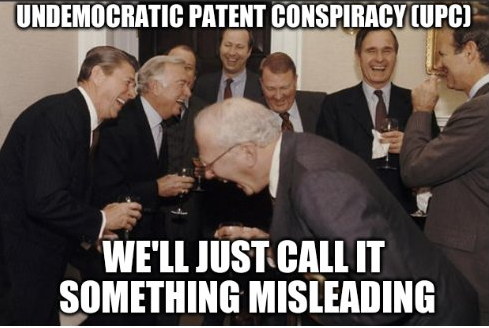
Summary: Another long installment in a multi-part series about UPC at times of post-truth Battistelli-led EPO, which pays the media to repeat the lies and pretend that the UPC is inevitable so as to compel politicians to welcome it regardless of desirability and practicability
THE UPC-CENTRIC EVENTS that we are seeing these days, some of which are organised by MIP (Managing IP) and IAM with support from the EPO, are a symptom of a rogue operation. Kluwer Patent Blog, part of Team UPC, continues to lobby for the Unitary Patent in the UK, even when it’s neither doable nor desirable, for reasons we are covering in this long series. Yesterday’s article from Kluwer Patent Blog was titled “Judge Grabinski: ‘Involvement UK is very positive for Unified Patent Court and Unitary Patent’” and it has attracted responses like “No democracy: such amendment would not need a revision of the UPC but could be implemented by the Administrative Com” or “Administrative Committee to replace the role of Parliaments to adapt the UPC in case UK leaves, pretty insane…”
Another part of Team UPC is joining this echo chamber. They are blogging about themselves under the heading “UK signals green light to Unified Patent Court Agreement”. But can they actually do this? No. Not really.
Earlier today we we covered yesterday's so-called 'roundtable' of the USPTO, noting the effect of having events or panels that are stuffed with just one side, barring any opposition from entering or at least speaking. This is what Team UPC has been doing for a long time and many examples were covered here over the years, predating even the name “UPC”. UPC hopefuls write about Brexit and the UPC, but the two are still incompatible. Watch what Darren Smyth, a booster of the UPC, wrote only days ago. Who is he kidding? Following all the misleading coverage from press paid for/bought directly and less directly by the EPO, some people still piggyback the false perception that the UPC will certainly come to the UK. Sorry, that’s not going to happen. Stop living in your bubble, UPC hopefuls…
All those sham debates like the one we wrote about this afternoon may make Team UPC feel confident, but they’re in for a surprise.
“Too many patent lawyers to my taste,” Henrion wrote to us regarding yesterday’s USPTO ’roundtable’. He watched the whole thing and said “Nader was there, but not even a[ny] software developers among the panels.”
Did we ever see any software developers at UPC events? Nope. Just lots and lots of lawyers and sometimes large businesses and executives who hire these lawyers. The EPO also dispatches Margot Fröhlinger to lie to the audience these days. Talk about preaching to the choir… what a pointless exercise in lobbying (to guests like politicians).
“UK government’s intention to ratify the UPC Agreement,” MIP wrote the other day (“Unitary Patent and UPC: A progress report” by Kingsley Egbuonu in London). But that is just meaningless if it cannot be done (it can’t). Here is how Egbuonu summarised it:
The German Federal Ministry of Justice updates Managing IP on Germany’s ratification timeline; IP Federation, BioIndustry Association, EPLAW and the UPC Preparatory Committee respond to UK government’s intention to ratify the UPC Agreement (UPCA); and some of the developments we expect in the coming months
Need we remind readers that MIP, Egbuonu’s employer, is virtually in bed with the EPO? We wrote about half a dozen articles about MIP’s UPC advocacy and relationship with the EPO. Do they really think that the public isn’t seeing this? Do they honestly believe they’re seen as objective observers?
Germany is still needed for intent to ratify the UPC. As Steve Peers put it last week: “UK & DE ratification will bring Unified Patent Court treaty into force treaty: http://eur-lex.europa.eu/legal-content/EN/TXT/?uri=uriserv:OJ.C_.2013.175.01.0001.01.ENG&toc=OJ:C:2013:175:TOC … ratification: http://www.consilium.europa.eu/en/documents-publications/agreements-conventions/agreement/?aid=2013001 … https://twitter.com/BrunoBrussels/status/803260415425843202 …”
It’s not as simple as that at all. In fact, if it ever gets this far, the population will quickly learn about what’s going on and then point out that these agreements are not constitutional and that the public is not being informed. It’s going to end up like ACTA and TPP.
Even UPC boosters like Darren Smyth wrote: “This does rather increase focus on the question of where is the German ratification? Are they ready to ratify yet?”
See this first comment on Darren Smyth’s cheerleading a week ago: “”pretty much a certainty” is a pretty bold claim in today’s world Darren!”
Here is another comment addressed at Darren, the UPC pusher (see his role in UPC propaganda events nowadays):
Sorry Darren, but “proceeding with preparations to ratify the Unified Patent Court Agreement (UPCA)” does not mean the UK will ratify the UPCA. The ratification is anything but certain.
The move is simply to gain time and to try to have a better bargaining position when the actual Brexit negotiations are starting.
The day UK will sign the protocol on immunities, I will believe that ratification is on its way. Before this, it is just gobbledygook.
In clear it means UPC is further delayed. As long as UK threatens to ratify the UPC, but actually does not do so, the UPCA will be held in limbo. It is meaningless to continue with the preparations if there is no clear will to ratify. The present statement is anything but a guarantee for ratification.
And even if UK would ratify, could any sensible representative advise his clients to go for a unitary patent when it is not clear what the future of the UPC will be once UK has left.
A proper decision on the ratification will not become before the start of negotiations under Art 50 Lisbon. It should be by March 2017, or even later when taking into account the legal battle about the involvement up front of the parliament.
The situation created by this statement is not very pleasant for the remaining contracting states, but that is not to be a surprise. It is like the participation in the EU: we want to participate, not for the sake of being a member, but simply to insure that nothing can happen which goes against our interests.
The only way for the other contracting state to get out the deadlock is to give a time limit to the UK for deciding whether they want to ratify or not.
And it goes on, without exception. Nobody in IP Kat comments has expressed any optimism about the UPC in a post-Brexit UK. The next comment says:
As some other commentators have remarked already, the government statement should not change much for the moment.
Bearing in mind the history of the UPCA and its contents, it is a rather bold claim to say that the UPC was “not an EU institution”. On the other hand, this is pretty much along the lines shown by the UPC proponents from the patent profession. Also, we have repeatedly seen such formalistic sharade being applied in the very same context, e. g. when it comes to the solution on Art. 6-8 or the position of the EPO in relation to unitary patent protection. It is rather characteristic of the project as such, that a government obviously sees itsef forced to rely on positions as weak as these.
Anyhow, the announcement should bring the German ratification procedure back to life shortly. Should it be completed smoothly (which is not certain), I would expect that at least the German ratification instrument will not be deposited until there is a binding solution of the UK ratification issue instead of cloudy declarations of intent.
“I’m forging ahead with my castle-building program for my goldfish,” one person said with the help of a parable, “even though it has been floating on its side for a week.”
“The one about building a castle for my dead goldfish is my favourite,” Tufty the Kat wrote about it in Twitter.
Many people already realise that the UPC bubble is about to burst, no matter what Lucy ("in the Sky With Diamonds") says. Just look at this tweet which seemingly agrees with the comments in IP Kat, even though it comes from Christopher Weber, a self-serving UPC proponent from Kather Augenstein. Recall Lucy with her photo op next to Battistelli -- one that she publicly bragged about. It basically sums it up, does it not? Those two were already pretty close, and one seems to have taken the role of “pawn”. Here is another visual reminder as a photo (or picture) is worth a thousand words:
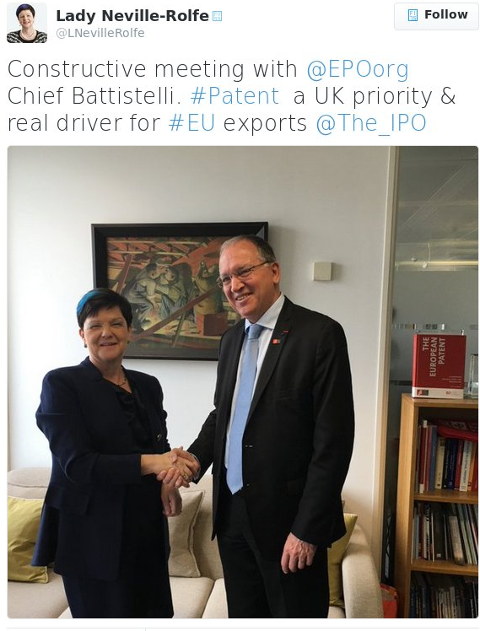
Dr Luke McDonagh’s remarks in Twitter are also quite noteworthy. Here he says: “PM May: “The UPC is not an EU court. Let’s ratify.” Baldrick: “But the UPC is bound by EU law & CJEU.” PM May: “Shhh, Farage may hear us!””
We know some people who have already contacted UKIP about this and UKIP is aware of the issues. That won’t go down well, will it?
The UPC simply won’t (probably can’t) be ratified in the UK once businesses and people realise what it is and what it can do to them (not for them). McDonagh added: “But leaves UK in a position more enmeshed with EU law than before June 23rd ref; makes hard Brexit yet more awkward…”
“Postpone the difficult questions for later,” one person wrote to explain what May and Lucy do for Battistelli here.
Here is another comment about this unexpected and bizarre move:
What a pointless exercise.
Why should the UK ratify an agreement it may well be forced out of during Brexit negotiations? Is the UK really so naive as to think that the EU is not going to look after itself first?
Without a guarantee the UK should sit still and let the negotiations play out…..
Another person said: “This is beyond exciting. The wheels are still on the bus. It remains to be seen if there is sufficient fuel in the tank to reach the next service station, let us hope the journey is largely downhill and without too many red lights.”
And here comes another: “Wow! A case of the UK sacrificing its UK litigators to help smooth Brexit negotiations? Ratify so as not to block the UPC and then hope (or rather desperately wish) that some fudge deal will be found to allow the UK to participate at some point in the future when no longer an EU state.”
Another one: “Bonkers. Absolutely bonkers. How can we be signing up to the UPC whilst simultaneously leaving the EU and ending the jurisdiction of EU courts over the UK? Nothing about the way Brexit is being pursued by HMG makes sense, but then I guess we shouldn’t expect differently when HMG has been set such an impossible task.”
Like we said earlier, not a single comment is optimistic about this. “So we are going to have UE rights in force across Europe (in the UK) at the time of Brexit,” one person wrote hypothetically. “Will we also get transitional provisions to turn those into UK patents?”
The answer to this rhetorical question is “no”. It makes no sense whatsoever.
“I fear that this is the worst of both worlds for the UK profession,” wrote another person. “I had watched my Trade Mark colleagues who are today in an EU system and who are faced with the prospect of exiting it with a certain smugness until today. Now we have contrived to enter a system that we may need to leave.
“Blinding negotiation tactics too Neville-Rolf!
“Of course it is what CIPA appears to have been pushing for (although who knows what they have been doing really as they move in mysterious ways), either because they are skilled tacticians or terribly naïve. Time will tell which it is.”
Another person called it “Astonishing!”
“Perhaps the conclusion is that this improves the UK’s negotiating position,” this person added, “especially if the court gets well “embedded” in London?
“Not the best outcome for patentees, though. Even more uncertainty added to the UPC (which creates a great deal of uncertainty on its own – particularly during the transitional period). Should be fun working out all of the permutations for this one!”
Now quoting Theresa May herself to highlight the contradictions:
Theresa May. October 2016. Conservative Party Conference.
“Our laws will be made not in Brussels but in Westminster. The judges interpreting those laws will sit not in Luxembourg but in courts in this country. The authority of EU law in Britain will end.”
“We are going to be a fully independent, sovereign country – a country that is no longer part of a political union with supranational institutions that can override national parliaments and courts.”
“But let’s state one thing loud and clear: …. And we are not leaving only to return to the jurisdiction of the European Court of Justice. That’s not going to happen.”
So again, May is contradicting herself. She’s trying too hard to appease CIPA and some law firms.
Then came the epic comment that mentioned Michel Barnier‘s role in the UPC and it is pretty great an observation:
And the roller coaster continues…wow, just wow, haven’t had this much excitement in years, please pass the paper bag, I’m feeling a bit queasy. So according to our illustrious representative for IP, the UK is continuing with its efforts to sign up to a deal that will force sovereignty of the EU court system on its national courts even if it is no longer a member of the EU – can’t imagine how that will go down with the erudite population that so loudly voted to “take back control”…and, in passing, one in the eye for the greedy Italian governement though, eh, thinking its day had come to shine and bask in European institutional glory ? I wonder what Michel Barnier thinks of all this, he was after all, the mouthpiece of the political rationale to cajole the various EU states into agreeing to the UPC in the first place – the mind boggles !
Here is another good comment:
It seems Britain really does want everything: to leave the EU but to remain part of an important new EU patent system (which most of the Europeans outside Germany, France and UK didn’t want anyway). How can it think to ratify the UPCA when is has voted not to be part of the larger EU?
Isn’t this a case of the bureaucratic machinery wanting to plough on when the field has already disappeared in the storm?
Madness indeed and probably a waste of tax payers money..
Sorry to say (as a UK ex-pat lawyer) but the UK government behaving like a big kid that wants to eat the cherries and cream on the top of the cake but has already refused to eat the sponge layers….
A good parent would say, sorry Sweetie but you can’t have it all…
“This is just a pressure release valve,” explained a person, “they had to say something so they’ve said we’re going to keep going. No timescale on actual ratification, or even a commitment actually to ratify.”
And in reply to the above:
I too spotted the absence of a firm commitment to ratify.
If this is simply playing for time, however, it would have been better if the IPO had avoided statements such as “It [the UK] will be working with the Preparatory Committee to bring the Unified Patent Court (UPC) into operation as soon as possible”. If that is not intended to mean what it so clearly implies, then the UK will end up burning a lot of bridges… which would not be the best of starts to exit negotiations with the EU Member States!
So the media, some of it funded by the EPO, missed all these comments from actual insiders who know this stuff. “These are truly astounding news,” remarked a commenter, “that deserve a much wider circulation than the cozy club of patent specialists. But will anyone care in these times that some call “post-truth”?”
Another person asked: “Which department would ratify the Agreement? Is Neville-Rolfe’s or Boris’s?”
Well, they cannot pretend it’s not an EU thing, as the following comment points out:
Perhaps she hasn’t read the opening paragraph of the brochure on the UPC web site helpfully called “An Enhanced European Patent System”
“In December 2012 the Council of the European Union and the European Parliament agreed on two regulations laying the foundation for unitary patent protection in the EU. Shortly afterwards, in February 2013, 25 EU Member States signed the Agreement on a Unified Patent Court (UPC).”
I know she has been busy lately…
Later on another person wrote: “The UPC refers questions to the EU court. So will EU decisions have two incarnations – one ignoring the EU court decisions, and one for continental Europe?”
Still, they cannot simply pretend it’s unrelated to the EU. In the words of another commenter (most are completely anonymous, so there’s no fear or retribution for being honest):
From the official news release: “The UPC itself is not an EU institution, it is an international patent court.”
Ah, sure. Except that Art. 20 of that very agreement you intend to ratify explicitly says that the UPC shall apply European Union law in its entirety and shall respect its primacy, and Art. 21 adds that decisions of the Court of Justice of the European Union shall be binding on the UPC.
I knew we had now entered the post-truth era, but we are now into post-logic territory as well…
What would be funny now would be if Germany started dragging its feet on ratification, to get some extra leverage in the Brexit negotiations…
This UPC-related “announcement was devised by little Baldricks,” said the following, “completely clueless…”
I’m with the commenter “do not pull my leg”.
The announcement was devised by little Baldricks, completely clueless how mainland European minds work, who think they know how to “game” the forthcoming BREXIT negotiations, who have their cunning little plans how to come out of it with the best “deal” for England.
To those infected by wishful thinking I would suggest that the announcement reveals no HMG commitment whatsoever, just more playing for time, by an Organisation that hasn’t a clue what to do next.
Another response to the same post called it “bullshit beside reality!”
A longer direct response said:
our comments suggest that you believe that mainland European minds and English minds work differently? At best that sounds like some mild racism, or possibly you adhere religiously to national stereotyping? Without even appreciating which nations are involved: “Brexit means UK exit”. At least for the time being, the little Baldricks are meant to be devising cunning plans for the best “deal” for the UK.
I entirely agree that the little Baldricks don’t actually have any cunning plans and that HMG hasn’t a clue what to do next. Otherwise we wouldn’t need any announcement before actual UK ratification. Perhaps some political justification was required for the continuance of the ongoing UPC project at Aldgate Tower in London?
Responding to the above, one more person wrote: “Actually, it’s much simpler. HMG needed to give a firm decision at yesterday’s Competitiveness Council, because otherwise other European countries were planning to go ahead without us.”
So the consensus seems pretty clear in IP Kat comments. It’s a shame that the media, led by EPO-bribed publications, missed the real story and instead parroted publications like the Financial Times, obviously unaware of its financial ties to the EPO.
IAM has meanwhile been trying to shame Germany into the UPC. It has done this quite blatantly for a while and Benjamin Henrion wrote that they are “working on a Constitutional appeal in Germany. CETA was in the same process.”
“To the extent that the British public cares,” noted another observer, “this is going to be tricky to explain #UPC,” later noting “I say tricky, I mean it’s going to be highly entertaining to see the intellectual contortions necessary.”
“All [?] legislation for participation in #UPC has passed,” this person said later, “so no time for awkward questions in Parl’t”
Actually, there is plenty of time. Just a statement on some Web site is hardly enough to propel the UPC into a reality.
“This is true,” wrote the mouthpieces of Team UPC (MIP), “although it’s hard to think of a lobbying group that would push the anti-UPC case in UK at this time.”
Wait and watch…
It was the same in the days of battles over software patents.
“So Brexit means Brexit,” IAM wrote, “but maybe it’s going to be a bit softer than the rhetoric suggests. UK’s UPC ratification will create much goodwill.”
For who? IAM and its readers? On a separate occasion MIP wrote “UK to ratify UPC. Huge news for Europe, for global patent litigation & maybe an indication that whatever the rhetoric Brexit will be softish” (either way, Brexit means that UPC would be tricky if not impossible to start/maintain).
There were also some responses from other countries (“#EUCouncil #Compet Good news – UK about to ratify the unitary #patent agreement”), but these fail to take into account practical limitations. Who is this good news to? Patent law firms? Patent trolls? Patent bullies? All the above? At whose expense? And are they just building false hopes?
The real casualty here is the media, which Battistelli continues to corrupt as we wrote this morning. No wonder so many people fell for the delusion seeded by the Financial Times (financial ties to the EPO). █

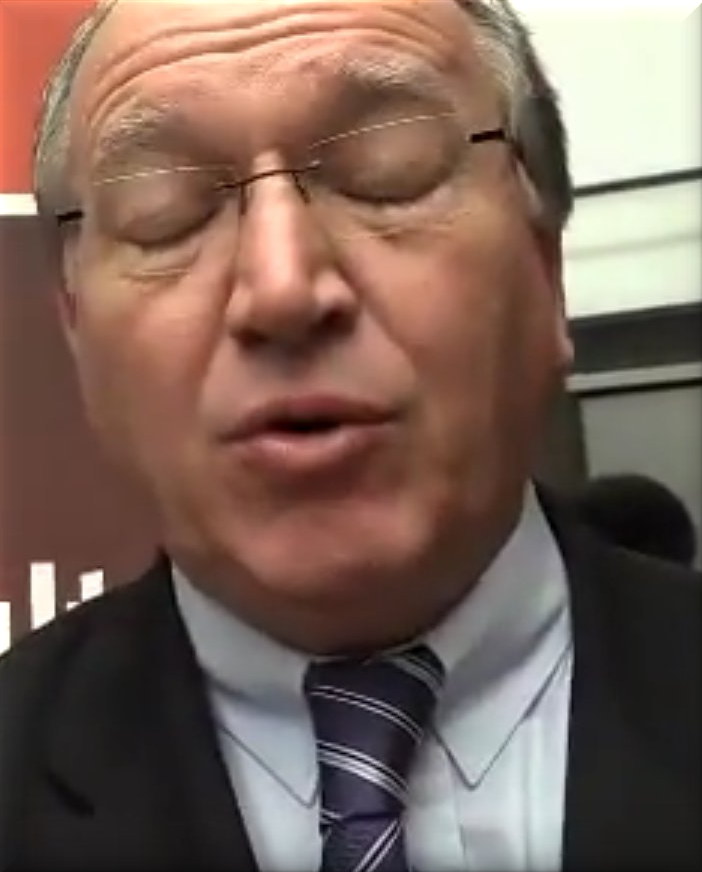
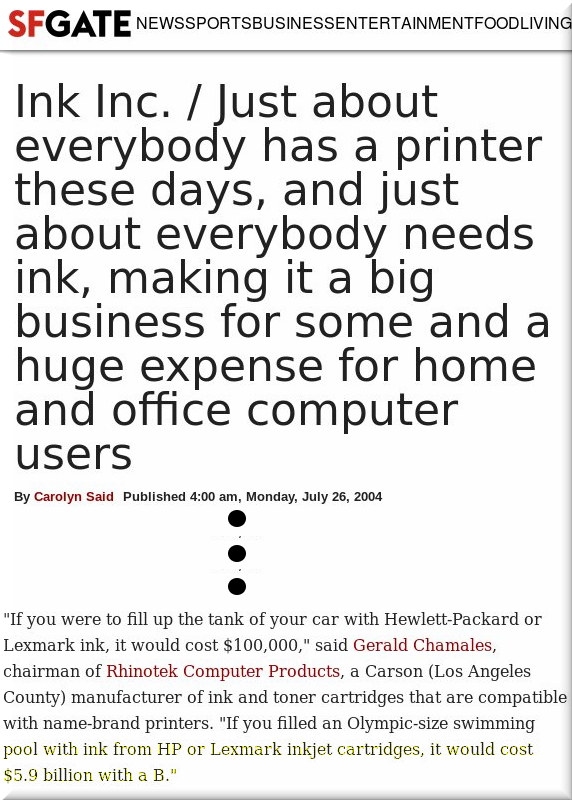
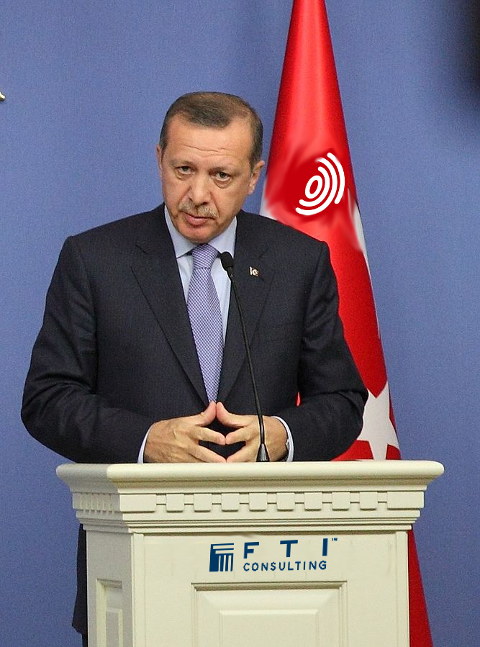
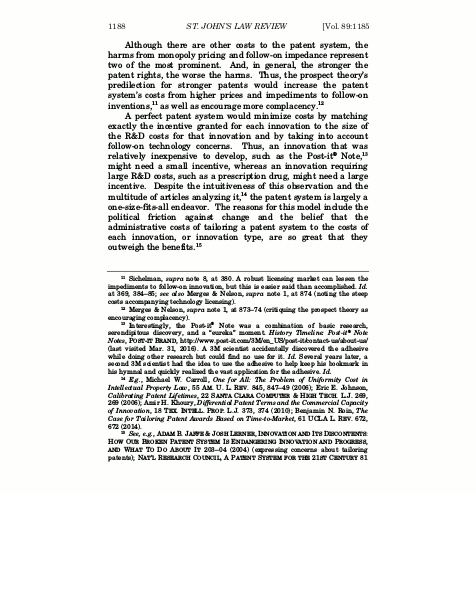
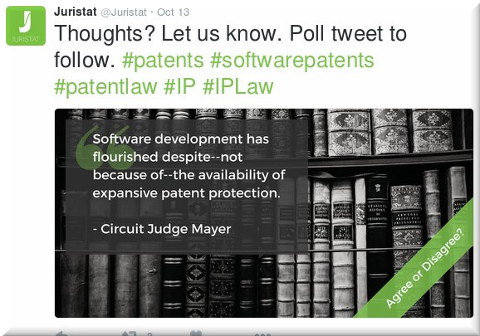
















 Content is available under CC-BY-SA
Content is available under CC-BY-SA